What Is Transportation Engineering | Major Disciplines of Transportation Engineering | What Do Transportation Engineers Do
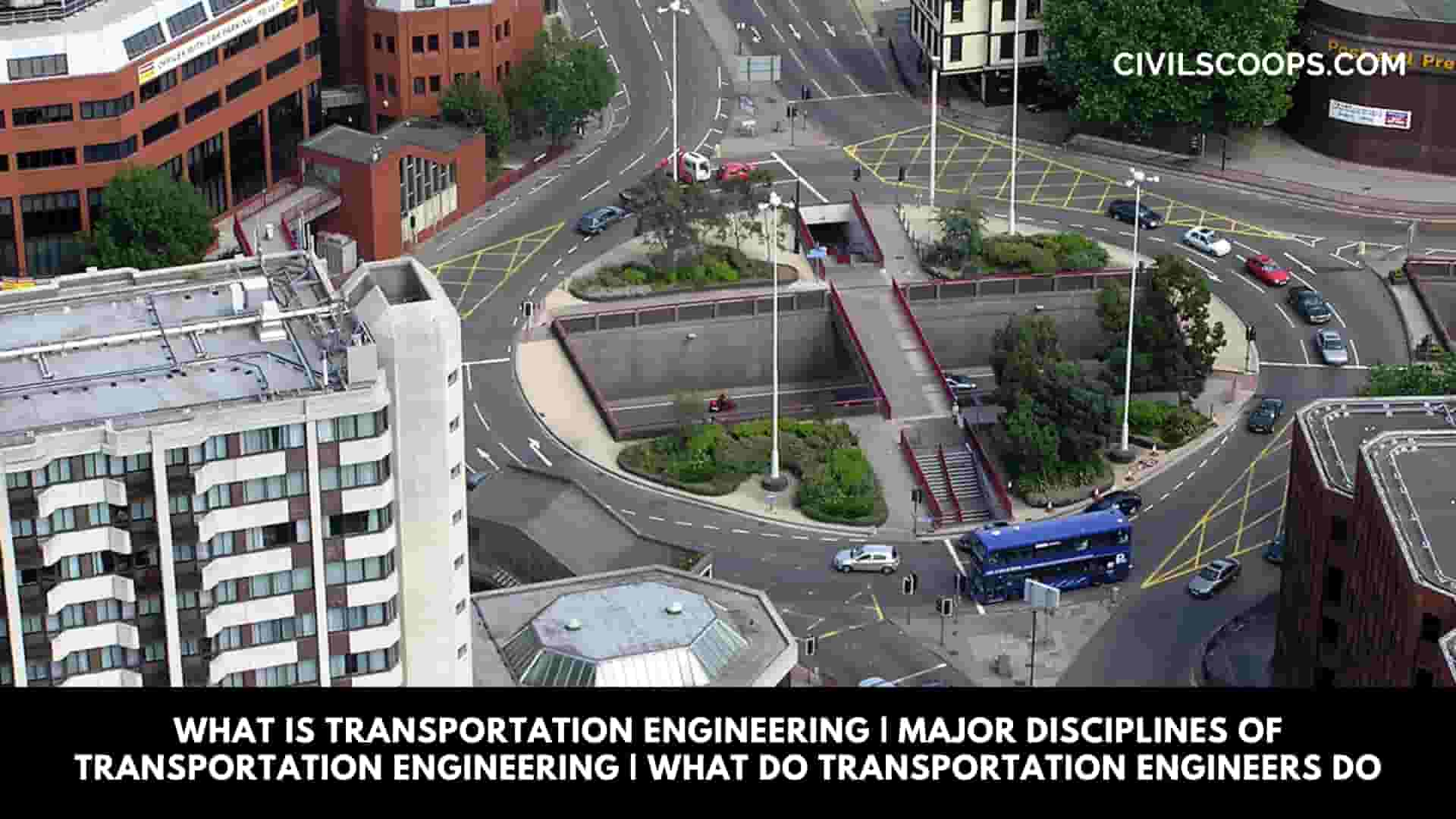
Table of Contents
What Is Transportation Engineering?
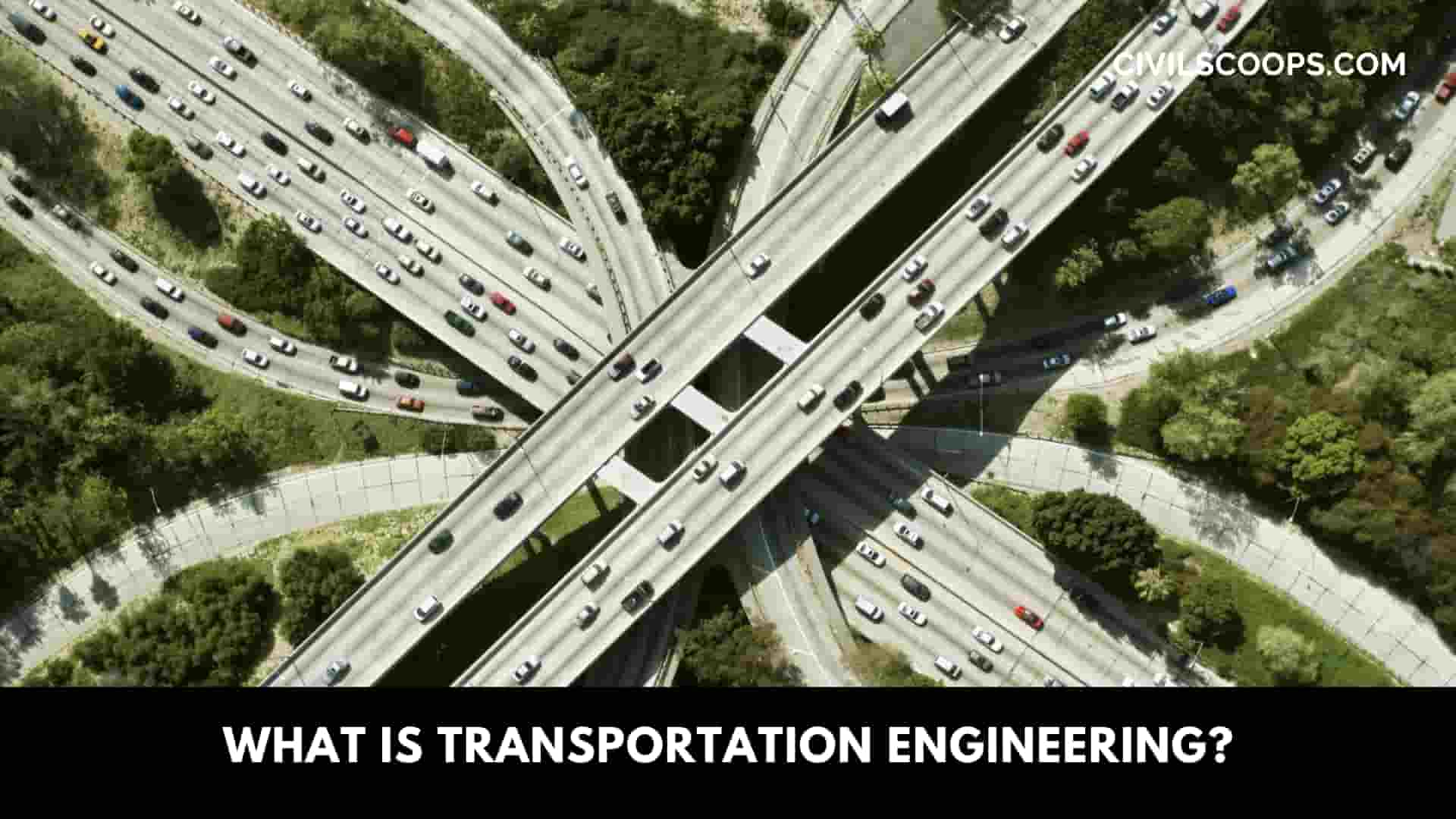
Transportation plays an important role in the development of the country. Transportation Engineering is a branch of civil engineering which deals with the planning, designing, operation, and maintenance of an efficient and safe transportation system.
It is a responsibility of Transportation Engineer to plan, design, build and operate the whole Transportation system in an effective manner for the safe and efficient movement of the traffic.
The Transportation Engineer face many challenges in the development of both network links and major terminals to satisfy transportation demands.
In this article, you will get to know all in this article you will get know about civil engineering Transportation and the roles and responsibilities of Transport Engineers.
Transportation system involves roadways, waterways, and roadways, etc. The main role of civil engineers is to maintain the current existing roads and infrastructure for it is efficient and safe traffic activity.
There is a huge need of Transportation to enhance the economic resources in the future. An effective transport system impacts the growth of the economy.
Transportation engineering is the application of technology and scientific principles to the planning functional design operation and management of the facilities.
Also Read: What Is a Classified Road | Classification of Roads in India
Major Disciplines of Transportation Engineering.
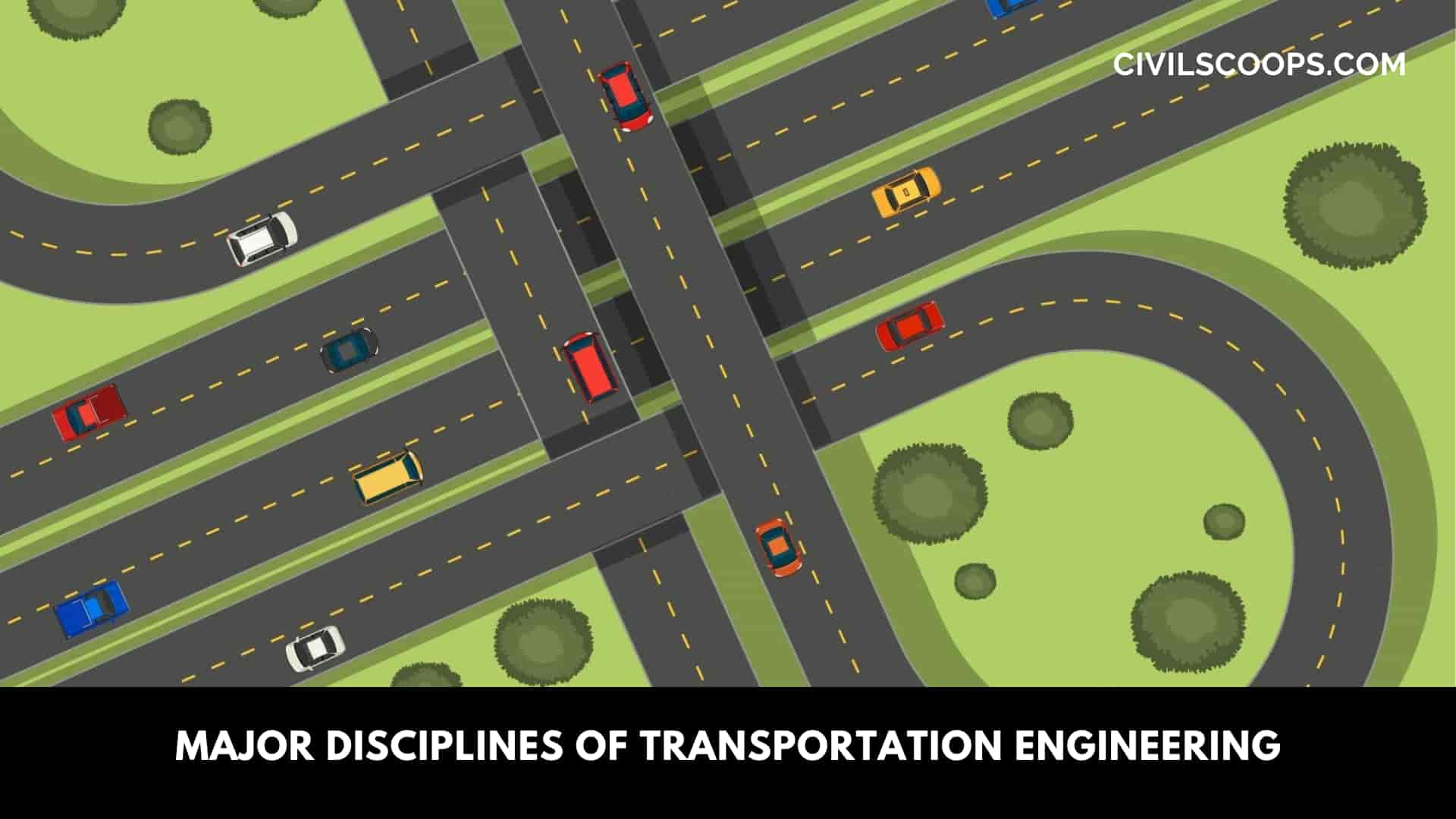
There are many important disciplines in transportation engineering are as follows.
#1. Public Transportation:

Public transportation, which is also known as mass transportation deals with the study of the transportation systems that needs the travel need of the people.
#2. Environmental Impact Assessment:

The depletion of fossil fuels and the declaration and the increasing pollution in the environment was a major problem.
The environmental impact assessment helps to identify the impact on the environment and gives a strategy to improve the condition of the environment.
#3. Accident Analysis and Reduction:

Transport engineers evaluate to identify the causes of the accidents and reduce the accidents by taking appropriate measures.
Transport engineers develop the different plants to construct the damaged Roadways in the Transportation system. The proper checking of the roads is done to identify the issues.
What Do Transportation Engineers Do?
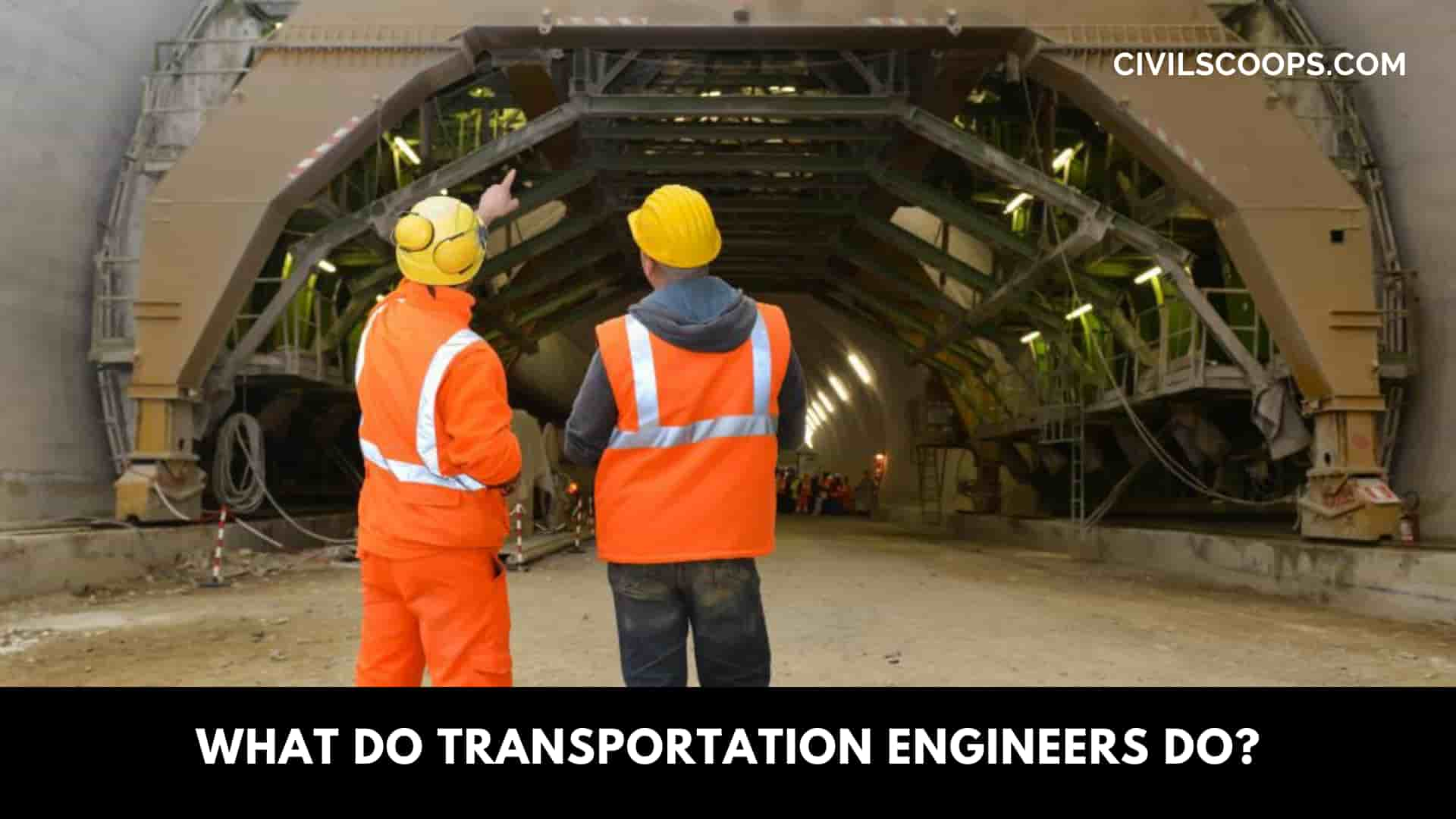
Transportation engineer plays a vital role in the efficient payment of traffic from one place to another place.
To become a Transportation engineer generally requires a bachelor’s degree in Civil Engineering advanced degree in Transportation engineering.
Transport engineers design and maintain the whole Transportation system which allows the people vehicles and goods to travel safely from one place to another place.
The roles and responsibilities of Transport engineers are as follows.
- To develop the various Transportation strategies for the efficient movement of Traffic.
- To plan, design, and develop the transportation systems, which include traffic signal systems.
- To develop and maintain traffic systems and processes.
- To prepare the administrative-technical and statistical reports on the traffic operations.
- To analyze and evaluate traffic impact when building transport.
- To prepare the project budget schedules and specifications for the materials.
- To evaluate construction project materials with environmental standards.
- To prepare to estimate the various construction of the transportation projects.
- To make and execute traffic management plans.
- To implement cost-efficient technologies in the Transportation system.
- To evaluate the traffic control devices and determine the need of its modification and expansion
- To integrate safety procedures and Standards in transport operations.
- Transport engineers develop the final project layouts drawings, which include different details of the Transportation system.
- The Transportation engineers inspect the complete transportation projects to ensure the safety and compliance of the standards and regulations.
- To review the various development plants in order to determine the potential traffic impact.
Also Read: Top 10 Companies for Environmental Engineers to Work For
Importance of the Transportation Engineering:
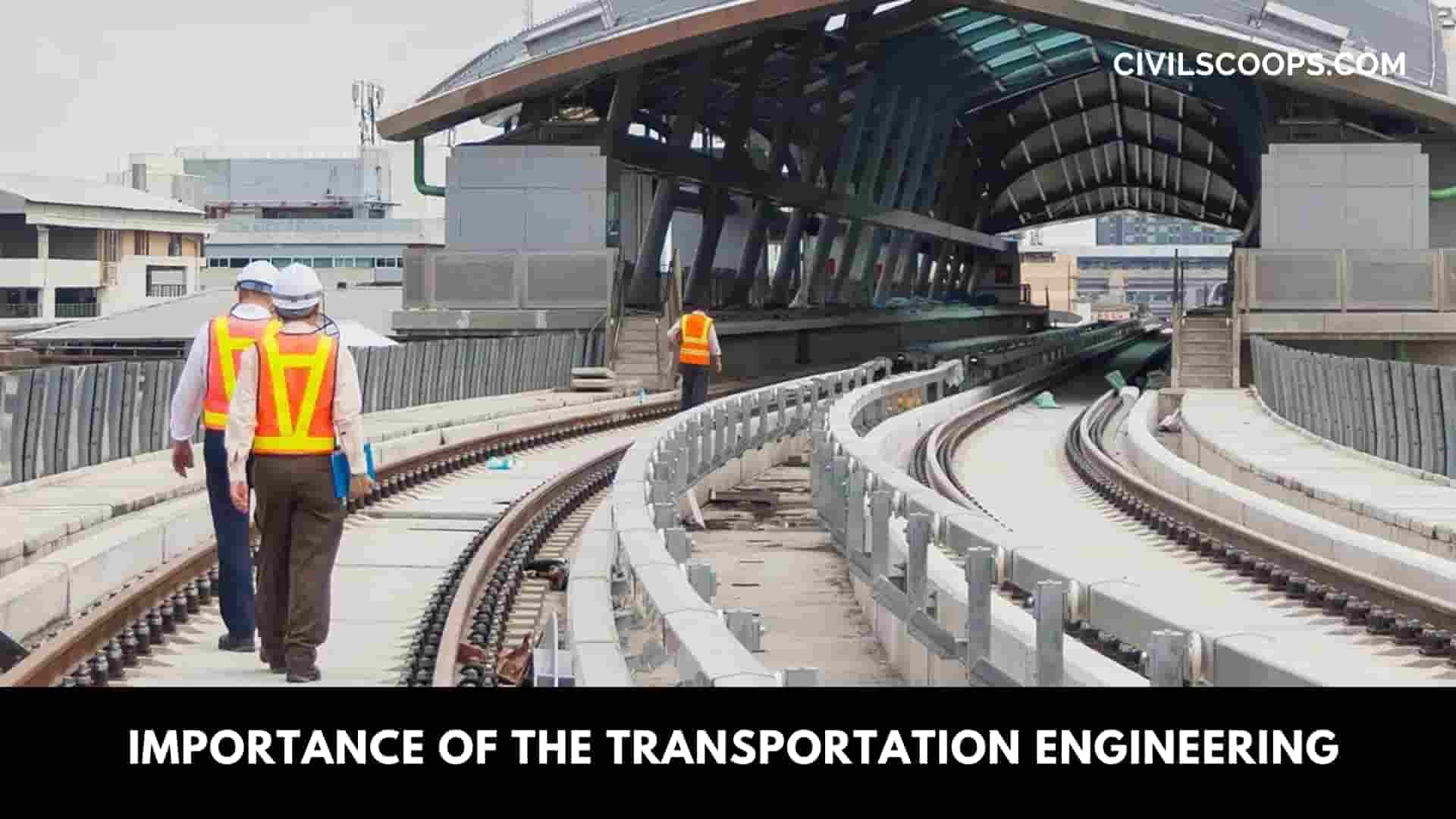
Transportation plays a vital role in the overall development of the nation. The importance of transportation engineering are as follows
- Transportation helps in the economic, social, and commercial development of the nation.
- Transportation also helps in the cultural as well as political development of the country.
- Transportation has to connect two countries or areas with each other and improve the employment opportunities.
- Transportation improves the import and export of the country and helps in the industrial development throughout the nation.
It is very important to take account of the Transportation system contribution to the development of economic resources of the nation and the enrichment of human life.
[su_box title=”FAQ” style=”default” box_color=”#333333″ title_color=”#FFFFFF” radius=”3″ class=”” id=””]
What Do Transportation Engineers Do?
Designs and prepares preliminary and final plans for highways, bridges, drainage structures, municipal utilities, roadway lighting, traffic control devices, intelligent transportation systems (ITS), and miscellaneous highway facilities.
Why Transportation Engineering Is Important?
Transportation engineering is a broad field that can apply to work with roadways, waterways, railways and other projects. These engineers develop faster, safer and more efficient means of transportation that ensure the safe use from people using them.
Principles of Transportation Engineering
Principles of Transportation Engineering
- Introduction.
- Properties Of Traffic Engineering Elements.
- Highway Geometric Design.
- Traffic Flow.
- Design Of Traffic Facilities.
- Public Transportation Systems.
- Capacity Of Transit Systems.
- Transportation Planning Process.
Types of Transportation Engineering
Any system that moves people and goods from one place to another falls under the scope of transportation engineering, which includes:
- Highways and roadways.
- Railways.
- Oil pipelines.
- Public transport systems.
- Traffic control systems.
- Automated transport systems.
- Space transport systems.
Transportation Engineer Roles and Responsibilities
Develops preliminary engineering treatments to determine construction feasibility and estimated costs. Investigates traffic problems and recommends methods to improve traffic flow and safety.
What Is Transportation Engineering in Civil Engineering?
Transportation engineering is a branch of civil engineering that involves the planning, design, operation, and maintenance of transportation systems to help build smart, safe, and livable communities.
Where Do Transportation Engineers Work?
Transportation engineers may work for the federal or state government, vehicle manufacturing companies, airline companies, railroad companies and trucking businesses.
[/su_box]
[su_note note_color=”#F2F2F2 ” text_color=”#333333″ radius=”3″ class=”” id=””]
Like this post? Share it with your friends!
Suggested Read –
- What Is Soil Vent Pipe | How Does Soil Stack Pipe Works | Soil Vent Pipe Material | Types of Plumbing System
- Types of Roof Tiles | Tile Roof Replacement | Tile Installation Cost | Roofing Tile Price | Ceramic Tile Price Per Square Foot | Tile Installation Factors
- Shotcrete Vs Gunite | What Is Gunite | Advantage & Disadvantage of Guniting Process | What Is Shotcrete | Advantage & Disadvantage of Shotcreting
- What Is Pad Foundation | Failure of Pad Foundation | Pad Foundation Detail | Types of Pad Foundation | Design of the Pad Footing Depends on Several Factors
- What Is Mat Foundation | Mat Slab Foundation| Advantage and Disadvantage of Mat Slab Foundation | Types of Mat Foundation | Where Mat Foundation Is Used
[/su_note]
Originally posted 2023-05-09 12:17:23.
